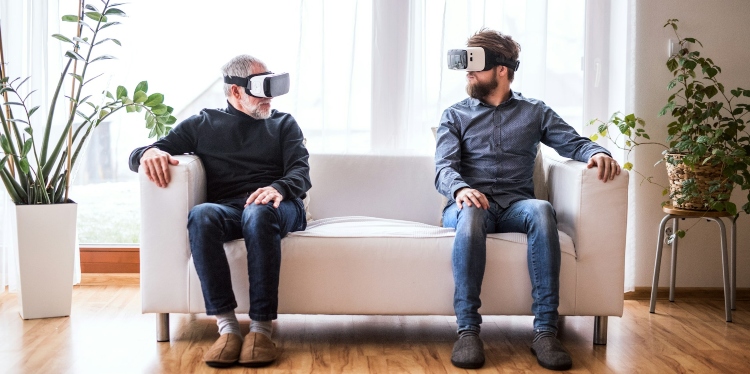Virtual Reality (VR) has been one of the most talked-about technological advancements in recent years, promising to revolutionize everything from gaming to social interactions. The online gambling industry is no exception. VR casinos have been presented as the next big thing—offering an immersive, lifelike experience that goes beyond traditional online gaming.
With advanced graphics and interactive environments, players can walk through virtual casinos, interact with dealers, and even sit at digital tables to play live casino poker as if they were in a real venue. But is this just hype, or are VR casinos truly the future of gambling? While the technology has made significant strides, several challenges still stand in the way of mass adoption. Understanding both the potential and the obstacles can help determine whether VR casinos will reshape the industry or remain a niche experience.
One of the biggest hurdles for VR gambling is accessibility. Unlike standard online casinos, which can be played on any smartphone or computer, VR gaming requires specialized hardware such as headsets and motion controllers.
This adds an extra cost barrier for players who may not be ready to invest in expensive equipment. Additionally, there are concerns about internet speeds, software compatibility, and the overall user experience. While high-rollers and tech enthusiasts may embrace live casino poker in VR, casual players may prefer the convenience of traditional online gambling. Until these challenges are addressed, VR casinos will likely remain an exciting but limited aspect of the industry rather than a mainstream alternative.
The Potential of VR Casinos
The biggest draw of VR casinos is immersion. Unlike traditional online gambling, where players interact with a 2D screen, VR technology creates a fully interactive environment. Players can walk through a virtual casino, sit at a table, interact with other gamblers, and even engage with live dealers. This creates a social element that is often missing from standard online gambling platforms.
Another key advantage of VR casinos is realism. High-quality graphics, spatial audio, and hand-tracking controls make it feel like you’re in a real casino, even if you’re playing from home. This level of engagement can enhance the overall gaming experience, making it more entertaining and potentially more profitable for operators who invest in the technology.
VR casinos also introduce new gameplay possibilities. Unlike traditional slots and table games, VR environments allow for innovative game mechanics that blend elements of skill-based gaming and social interaction. Imagine a poker game where players can read each other’s virtual body language or slot machines that feature interactive storylines and environments. These advancements could attract a new generation of players looking for more than just simple point-and-click gameplay.
Finally, VR casinos align with the broader trend of the metaverse—an emerging digital space where people can work, socialize, and play in virtual worlds. As companies like Meta, Apple, and Google invest heavily in VR and AR technologies, the idea of a fully realized virtual gambling world becomes more plausible. If VR casinos integrate with metaverse platforms, they could become a central part of the digital economy, offering virtual assets, cryptocurrency payments, and NFT-based rewards.
The Challenges Holding VR Casinos Back
Despite the promising potential of VR casinos, significant barriers are preventing their widespread adoption. One of the biggest obstacles is hardware accessibility. High-quality VR headsets, such as the Meta Quest 3 or the PlayStation VR2, can be expensive, and not all players are willing to invest in the technology just for gambling. Additionally, VR setups require a decent amount of physical space and technical knowledge, making them less convenient than simply logging into a mobile or desktop casino.
Another major issue is the limited number of VR casinos currently available. While some platforms, such as SlotsMillion VR, have made efforts to bring virtual gambling to life, the overall selection remains small. Developing VR-compatible casino games requires significant investment, and many operators are hesitant to take the risk without a clear return on investment. Without a strong library of games and platforms, VR casinos struggle to attract a mainstream audience.
Technical limitations also play a role in slowing adoption. VR technology is still evolving, and many current systems suffer from issues like motion sickness, high latency, and graphical limitations. If a VR casino experience is laggy, uncomfortable, or visually unappealing, players are unlikely to stick around. Until the technology improves, many players may prefer the simplicity of traditional online casinos.
Regulation and security concerns add another layer of complexity. Online gambling is already subject to strict laws in many jurisdictions, and the introduction of VR elements raises new questions about fair play, responsible gambling, and fraud prevention. Ensuring that VR casinos meet regulatory requirements while maintaining a seamless user experience is a challenge that operators must address.
Finally, the social aspect of VR casinos, while appealing, also introduces potential risks. Virtual environments allow for real-time interaction, which can lead to issues like harassment, cheating, or manipulation. Moderating these interactions in a way that ensures a safe and enjoyable experience for all players is a significant challenge.
Are VR Casinos the Future or Just a Gimmick?
The answer lies somewhere in between. VR casinos are not just hype—there is genuine potential for them to become a significant part of the gambling industry. The technology offers unique advantages, including immersive gameplay, social interaction, and innovative new game mechanics. As VR hardware becomes more affordable and developers create more engaging virtual experiences, interest in VR gambling is likely to grow.
However, in their current state, VR casinos are far from replacing traditional online gambling. The high cost of entry, limited game selection, and technical challenges mean that VR gambling remains a niche experience rather than a mainstream option. Most players still prefer the convenience of mobile and desktop gaming, where they can place bets with minimal effort and without needing specialized hardware.
The key to VR casinos becoming more than just a novelty is integration with broader technological trends. If the metaverse continues to develop and digital economies become more established, VR casinos could play a major role in the future of online gambling. The introduction of cryptocurrency, blockchain security, and NFT-based rewards could further enhance the appeal of virtual gambling worlds.
In the short term, VR casinos will likely remain an experimental feature offered by a select few operators. However, as the technology improves and player interest grows, they could evolve into a legitimate alternative to traditional online casinos. For now, VR gambling is more of an exciting concept than an industry-changing revolution—but in a few years, that could change.
David Prior
David Prior is the editor of Today News, responsible for the overall editorial strategy. He is an NCTJ-qualified journalist with over 20 years’ experience, and is also editor of the award-winning hyperlocal news title Altrincham Today. His LinkedIn profile is here.











































































